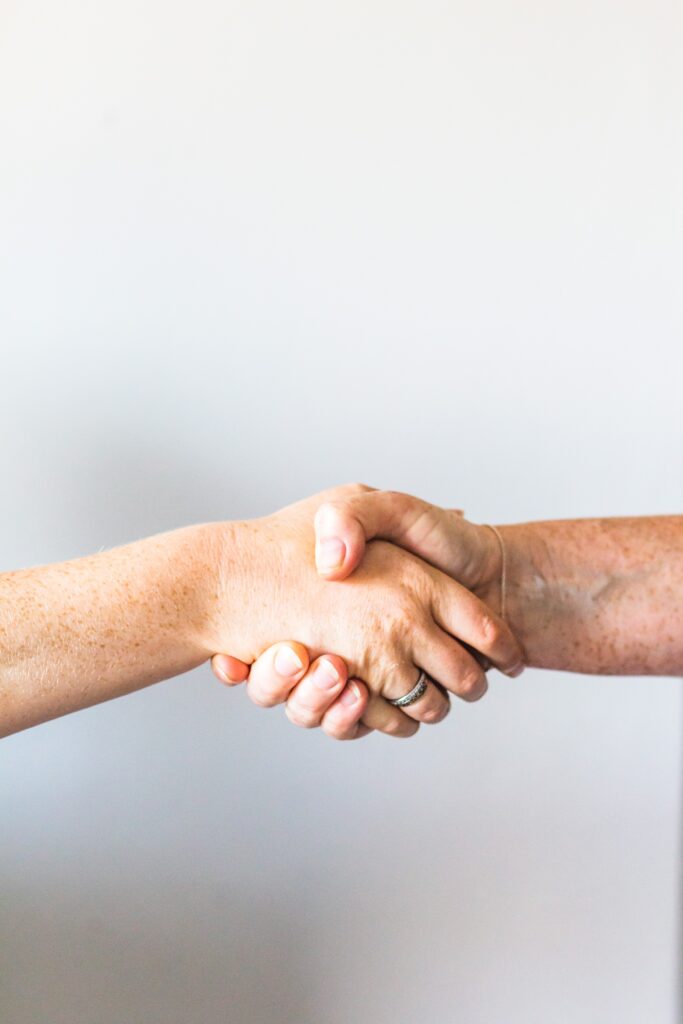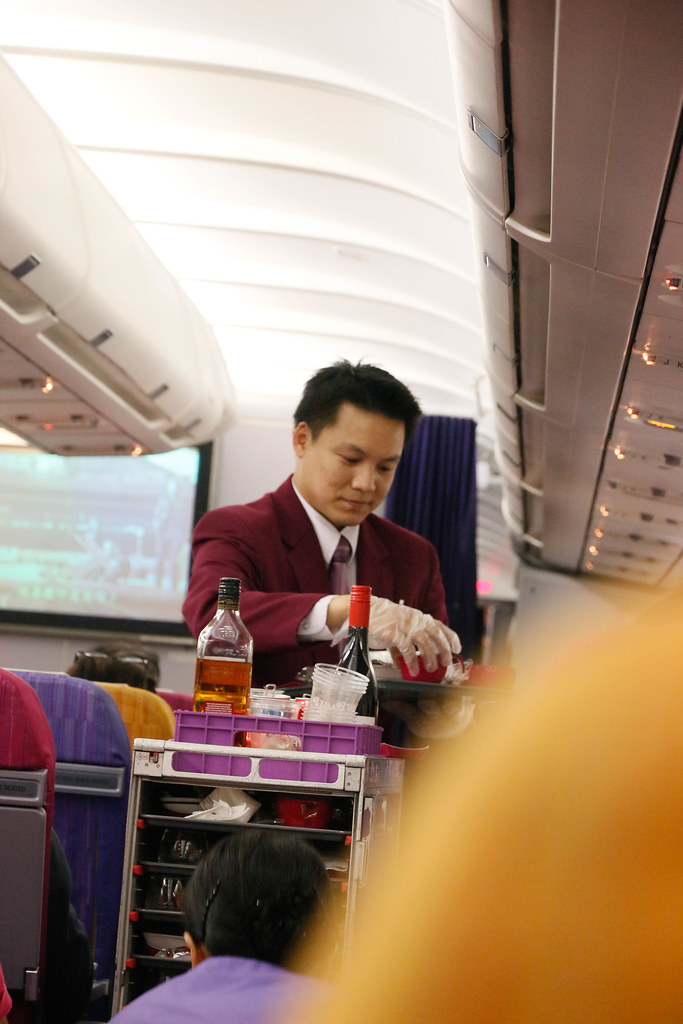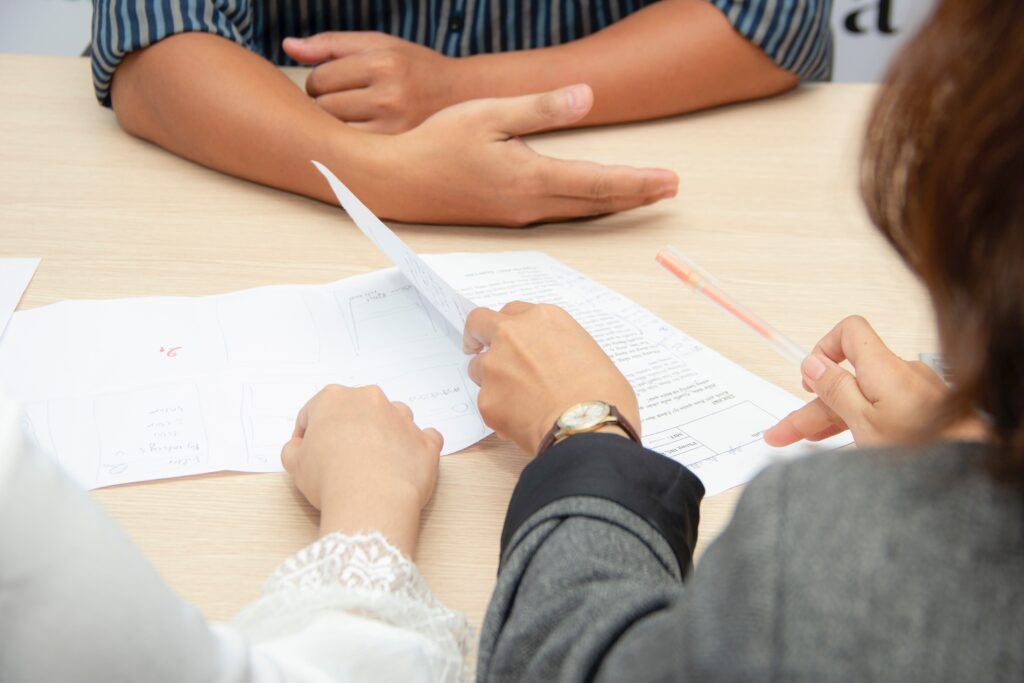Flight attendant interview questions
Are you thinking about becoming a flight attendant? Here are some common airline industry questions you might be asked during an interview and some tips on how to answer them:
- Why do you want to be a flight attendant?
- What customer service experience do you have?
- What Makes Someone a Good Flight Attendant?
- How would you handle a passenger who becomes unruly or disruptive and Will Not Comply With Flight Policies?
- What Would You Do to Calm a Passenger Who Was Anxious and Afraid to Fly?
- Are You Prepared to Be Traveling Away From Home All the Time?
First you need an introduction
- Prepare a short 1 to 2 minute self-introduction.
- Start by greeting the interviewer with “a good morning” and ask how they are.
- Then state your name, your educational qualifications and past experience, if any. Keep it short and brief.
- Say something about your family background in two-or-three sentences.
- Never say you’re a new hire if you don’t have any experience, Just skip it
- Say “I have worked as, or I’m working as _______
- my job responsibilities include ______
- You may want to talk about a strength you have by giving an example that is relevant to the flight attendant job.
- For example-I have great customer service skills. In my last job I ____.
- Try to end your introduction with a bit of humor.
- Practice this self-introduction in front of a mirror. Check your facial expressions and continue until it feels comfortable and natural.
Smile as much as possible, smiling is a major deciding factor
And of course, you will be able to use this when asked “Tell me something about yourself?”


What skills is the airline looking for?
You will want to look at the airline website that you’re applying to try and see what they are looking for. But in general you will want to prepare answers that show skills in the following categories:
- Teamwork
- Problem solving / planning
- Initiative / leadership
- Interpersonal skills / conflict resolution
The interviewer wants to know how you behave under pressure. So you want to come across as relaxed and confident as you can.
Do not give any fake or dishonest answers that you think the interviewer wants to hear. The interviewer has the advantage. They have done plenty of interviews and can easily judge if you are honest or just bluffing.
And remember, there will most likely be a follow up question on your original answer. So make sure your original answer is something you are comfortable with and can talk a bit about.
Don’t Forget About Researching The Airline!
Don’t go into your interview not knowing anything about the airline itself! Read up on the specific airline you’re interviewing for.
- Have they been in the news recently? Make sure you know about it.
- Do you know what types of aircraft they fly? (A320, 747, ect…)
- Do you know how many hubs they have?
- Do you know where their hubs are?
- What countries do they serve
- And you need to be familiar with the airline’s brand. Before you go into the interview, find out how the airline is marketing itself. How does the airline want to be seen?
Check out there social media sites like:
- There company website
- There Facebook page
- Instagram account
- YouTube Channel
- Twitter Feed
- Any thing else you can find
You also want to stand out, so you need to personalize it. Find something about the airline that you like. Maybe the airline supports a cause that is important to you or maybe you like the lifestyle…
You don’t need to be an expert, but you need to know enough to hold a short conversation.


Make sure you know your resume
If you don’t have any previous experience. There is a very good chance that most questions will come from your resume itself. Your hobbies, interests,extra curriculum etc…
Experienced candidates will be asked about their current job.
When answering the questions don’t forget to Smile, which most candidates fail to do. A good way to improve your confidence and speaking style is to talk in front of a full size mirror. Practice will make you perfect.
The star format
Lets start with what you should NOT answer using the STAR format!
Not all questions can be answered in the STAR format. Don’t try to force it, your answer will end up sounding unnatural. Not all questions are of the STAR format type. (behavior type style). The following questions should NOT be answered in the STAR format.
- Why do you think your previous experience has prepared you for this job?
- Do you think being a flight attendant is a glamorous job?
- Why do you think you would be a good representative of (airline name here)?
- What does great customer service mean to you?
- What are your responsibilities in your current position?
- What are your strengths / weaknesses
STAR is an acronym that stands for
(S) situation (T) task (A) action (R) result
To determine if the question should be answered in the STAR format, The question will start with something like “Tell me about a time when…”
When you hear that, they are asking you to tell them a story.
- Tell me about a time when you faced an emergency.
- Tell me about a time when you received great customer service.
- Tell me about a time when you gave great customer service.
- Tell me about a time when you worked as a member of a team.
- Tell me about a time when you had a teammate that wasn’t pulling their weight.
- Tell me about a time when you had a disgruntled customer.
Notice that the question “Why do you want to be a flight attendant” is NOT in this list, because it’s not a behavioral question.
Rules for picking the STAR format story:
- It needs to be a specific story (if it has happened several times, just pick one time).
- It needs to have a happy ending. Pick a story where you were successful in your task of solving the problem and having the customer have a great experience.
- You need to follow company policy and procedure, no exceptions. So NEVER say “even though I wasn’t supposed to, I [did something against company policy]”.
Making up your own rules may be okay in other industries like the food service industry but it is NEVER okay in the airline industry.
Situation and task are usually in the first single sentence and is the setup for your answer.
Situation is where you’re starting from ,and the task is the problem you need to solve.
Situation | Task |
One time I was working as a waitress at Dennie’s | a large crowd came in wanting to sit together but we were packed |
One time I was working as a bank teller for Bank of America | A customer came in wanting to cash a check but they only had 1 form of ID, but we required 2 |
One time I was working as a (whatever) | And something happened |
Make sure you give the recruiter some context. You don’t know what information they may have about you, assume that they don’t have your resume. So always include where you worked (Dennie’s, Bank of America, etc…).
The Action: your action is going to include the steps you took to resolve the issue (the task). It will also include what happened, how the issue was resolved.
Your action is the most important part. This is when you’re solving the problem, satisfying the customer, etc…
The result states why this resolution of the issue matters.
- Was it because you were able to keep a customer happy and were able to retain them as a customer in the future?
- Did the customer write a good review on a social media site about what you did?
- Maybe your manager complimented you on what you were able to do.
- Did you win employee of the month?
The result can be
- emotional, the customer now comes in and hugs you to thank you.
- profits, you were able to avoid throwing out product because the customer didn’t leave.
- building business relationships,
- keeping long term customers,
- getting referrals, friends of the customer started to come in.
- Did your manager compliment you,
- did you get a good review on Yelp,
- if someone continued to come in and thank you for what you did.
- It can be you just knowing you did a great job.
Whatever it was…
Give Me an Example of (tell me about) How You Have Worked in a Team Setting.
The interviewer is looking for your experience and comfort in working in a team.
They can get a good idea of how you will handle a similar situation by the way you handled this one.
Talk about
- Your experience in working in a team in your:
- school
- Job
- Volunteering
- Family
- Provide specific examples of team successes
(The situation) One time when I was part of the JV soccer team. We played the local powerhouse, and we were the visiting team.
(The Task) We really needed to win this game because we had not won a game so far that season.
(Action) Our team came together, helped each other out and won the game.
(Result) Because the way our team came together we ended up being a much better team after that game.
Tell me about a time you dealt with an angry / unsatisfied customer or client?
The interviewer is looking for your experience and comfort in dealing with irate customers. you’ll see another similar question bellow. the only difference would be the situation you will be put in.
They can get a good idea of how you will handle a similar situation by the way you handled this one.
Talk about
- Your experience in conflict resolution:
- at school
- on a Job
- Volunteering
- in your Family
- Provide specific examples
make sure you mention the importance of
- staying calm
- de-escalating the situation
- finding out exactly what the customer is having issues with. they don’t always say what is actually upsetting them.
(The situation) What was the customer asking / complaining about.
(The Task) What you needed to do to resolve the problem.
(Action) What you did.
(Result) What the result was
Tell me about a time when you went the extra mile for a customer or client?
The interviewer is looking to see if you have:
- Good customer service
- You care about the customer
- And you ability to empathize with their problems
State the situation you and the customer found yourselfs in. be brief, don’t ramble.
What did you do?
- How did you go out of your way?
- Did you have to stay with the customer?
- What was the resolution?
Tell me what you think questions
These questions let you show your personality to the recruiter. They are based on what you think or believe, so there is no right answer. The Answer must come from your heart, your thoughts, and your experience.
- You get to tell them why you want to be a flight attendant
- Tell them how your experience has prepared you to be a flight attendant
- Tell them about your personality
- Tell them about your natural love for people and your inclination to serve and help.
You may be able to use one job experience example to answer several questions, (for example, your problem solving skill example may be used to answer a team member skill question) but try to avoid this. If you can, try not to use the same example more than once in the interview.
Tell me why you want to work for our airline?
The interviewer is looking to see if:
- You want this job or just any job
- Do you have a good grasp of what the job requires
- If your career goals match the position
To answer this question you need to
- Do your research on the company
- Explain that your current skills will allow you to succeed in this job
- And describe why you would enjoy working as a flight attendant
Tell me what customer service experience you have?
The interviewer may use this question to find out if you know the elements of good customer service. And wants to know how you’ve used customer service skills in past jobs.
You’ll want to mention how you provided customer service and include situations where customers felt satisfied.
The elements of good customer service you’ll want to mention are:
- Having a good attitude and being kind to customers
- Working efficiently and quickly to get resolution to customer issues
- (problem solving) Figuring out solutions to difficult problems is an important part of customer service
- Knowing the airlines products, services and policies is important to be able to answer customers’ questions
Review the “Airline industry questions” below to figure out what industry specific customer service skills you could include in your answer.
Where do you see yourself in 5 to 10 years from now?
The interviewer wants to get a sense of how your career goals and if they align with the company’s goals. It also helps them gauge whether you’re likely to stick around for a time or will you leave after a few months.
Get familiar with the flight attendant career path.
You might say something like, in 3 years I would like to be a lead flight attendant. But in the longer term, I would like to train new hires on how to be a flight attendant.
What is your greatest weakness?
The interviewer wants to know how honest and self aware you are. They also want to see if you’re willing to improve on your weaknesses.
- Make sure to choose a weakness that doesn’t prevent you from getting the job
- But be honest in the weakness you choose
- Include an example of how you tried to improve. Maybe you asked a fellow employee to help you out.
Why did you leave your last job?
The interviewer wants to know:
- How loyal you are to your employers
- How professional you are
- Can you perform your job functions
- And work in a team
Possible reasons include:
- A combination of personal and professional reasons (left for more money, shorter drive)
- Try to connect the reason you left to why you’re asking for this job (more money, a career rather than a part time job)
- DON’T bad mouth your previous employer!
Why do you want to be a flight attendant?
If you don’t have any experience, don’t worry about getting the perfectly right answer. The interviewer is looking for you to be sincere, passionate. And have an understanding of the job of a flight attendant. Rely on your customer service experience to answer these questions.
Recruiters hear it over and over again “I want to be a FA because I want to travel”. When they hear that statement they get nervous, it makes them believe that you don’t understand the job you’re applying for. After all, you’re not applying to go on a vacation, you’re going to be working.
Your goal is to find a way to say “I want to be a flight attendant because I love to travel and I love people” without sounding cliche.
You’ll want to say something like “I like the idea of helping people along their journey, this is really exciting to me”.
Here is one way you could construct an answer.
You’ll want to make 3 lists.
- The first list is a list of the reasons why you JUST KNOW you’ll be a great flight attendant. Get this list by answering the question, “Why should the airline hire you?”
- Look at your previous experience. Past jobs, after school activities, part time jobs, hobbies ,etc…
- The second list is why you (really, really) want to become a flight attendant.
- Do you like the idea of free travel?
- Do you hate your 9 to 5 job?
- Have your children left the home and you want to do something for yourself?
- The third list is about the Airline brand:
- Before you go into the interview, find out how the airline is marketing itself. How does the airline want to be seen?
- The recruiters want to hear “Why do you want to work for our airline versus another airline?”.
- “Is there something about our airline that you like?”
- “Is there something about the airline that you can support?”
- The recruiters want to hear “Why do you want to work for our airline versus another airline?”.
Then rewrite your second list into a more professional answer and incorporate the “Why should the airline hire you?” list and the Airline brand list.
Your second list will put your personality into the answer. But in the final answer you’ll want to focus on what you’ll bring to the airline, and why they should want to hire you.
What Makes Someone a Good Flight Attendant?
This question allows you to show you have a grasp of the qualities of a good flight attendant. Memorize the following list. After each quality, give a brief explanation of why it’s important.
- providing great customer service
- working well in a team setting
- professionalism
- Adaptability
- physical and mental fitness
- solid work ethic
- ability to multitask
- decision-making skills
- and warmth (empathy)
When you’re asked you’ll want to state the top 3 or 4 on this list. You don’t want to ramble. But if they ask for more, you’ll want to be prepared.
Onboard situational questions
If you don’t have experience, don’t worry. The recruiter will take that into consideration.
These types of questions will come in 3 different flavors.
- It can be a safety guideline question
- a regulation question
- or if it’s strictly customer service focused
Now remember, customer service NEVER overrules a safety issue! So if the question has customer service and safety aspects, it’s a safety question. But you use your customer service skills to solve the safety issue.
Examples of Safety questions
Example 1: you are on a flight and a passenger who seems intoxicated asks you for another drink. How do you handle this question?
Step 1) ask yourself if this is a safety or a customer service issue? In this case it’s a safety issue. There is a potential of this person becoming unruly.
Step 2) Because it’s a safety issue you have a goal, which is not serving this person any more alcohol.
Step 3) You’ll want to be tactful. “I’m sorry but I can’t serve you at this time. But I would love to get you something else to drink or maybe a snack. Then maybe we can talk about another drink later.”
Example 2: fasten seat belt sign comes on. So you are walking through the cabin to make sure all passengers have their seat belt on. Then you see a child asleep on the floor. How do you handle this?
Step 1) First of all, you should realize that this is a safety issue. Everyone on the plane needs to have their seat belt on and buckled.
Step 2) So you have a goal, which is getting the kid into a seat and buckled up.
Step 3) Be tactful. Talk to the parent and mention that the seatbelt sign just came on. Offer to help them to get the kid into a seat and buckled up. You may offer pillows and blankets…
Examples of customer service questions
Example 1: Passenger complains about a crying baby.
- Apologize and see if there’s another seat available or offer them ear plugs. Then check on the other passengers and the mom to see if there is anything you can do.
Example 2: What would you do if you noticed a passenger that was nervous about flying?
- How will you know? Maybe the passenger will tell you or they may just look nervous or scared.
- Introduce yourself and try to get into a conversation about where they are going and why, to try to get their mind off of flying.
- Make sure you explain what will be happening (noises and such) so they are not surprised. Offer water etc…
Example 3: How would you communicate with a passenger that spoke a different language?
- Find out what language they do speak, if it’s a language you speak, even if you don’t speak it well, then you just solved the problem.
- Otherwise see if someone else on the flight speaks the language and it doesn’t have to be another FA.
- Can you use sign language, draw pictures, or maybe you can get on the phone with the person’s relative, etc…
How would you handle a passenger who becomes unruly or disruptive and Will Not Comply With Flight Policies?
The interviewer is looking for skills in:
- conflict management
- quick thinking
- and good judgment.
Talk about
- the importance of remaining calm
- Highlight your communication skills
- Trying to de-escalate the situation by reasoning with the passenger. Explaining why the policy is important (safety)
- The possibility of having other flight attendants talk to the passenger (teamwork). Sometimes if someone else talks to the passenger they may respond differently. Even if they are saying the same thing
What Would You Do to Calm a Passenger Who Was Anxious and Afraid to Fly?
This question will allow you to show how you interact with the passengers (customers)
Don’t worry if you don’t have the perfectly correct flight attendant answer. The interviewer is looking to see if you have:
- Good customer service
- You care about the passenger
- And you ability to empathize with their problems
Remember to include:
- To check in on the passenger now and again
- Ask if the passenger needs anything
- Reassure the passenger that they are not the only one that feels that way
Are You Prepared to Be Traveling Away From Home All the Time?
Your interviewer will want to know how adaptable you are and if you have family or other obligations.
- Make sure that the interviewer knows you’re aware of the flight attendant lifestyle.
- State that your current lifestyle is suited to the flight attendant lifestyle. You’ll want to tell them how.
Mention:
- You’ve been thinking about being a flight attendant for a while
- Your family supports you on your decision
- You know it involves being on call with many schedule changes
- You’re aware of the Long shifts away from home
What questions YOU should ask
Make sure you ask questions, it’s a big part of how the interviewer will evaluate you. But limit your questions to subjects related to the work, such as:
- What your day to day duties will be
- what their expectations are in the first month, the first year…
- how the airline will measure your performance, etc…
- Who will be measuring your performance? After all, when you first start, you’ll be working with a different set of crew members each flight.
And save the questions about the benefits of the job to a later interview. Or better yet, wait until you’re offered the job.
- Practice, practice, practice
- The importance of practicing for the interview
- Tips for practicing, including mock interviews and reviewing common questions

Make sure you follow up
After the interview, make sure you send a thank you note to the interviewer. This shows that you’re still interested in the position.

and Make sure you prepare
Flight attendant jobs are very competitive! You don’t want to lose out because someone else prepared better than you did.
So make sure you prepare as much as possible at home!
You’ll go into the interview with a lot more confidence if you practice with a friend or family member.
- Start by practicing in front of a mirror
- Set up mock interviews, have your family or friends interview you
Are You Ready to Become a Flight Attendant?
Still wondering how to become a flight attendant?
Then check out our post: How To Become A Flight Attendant – The Ultimate Guide!
Where we give you a step by step process to achieve your goal, to become a flight attendant!